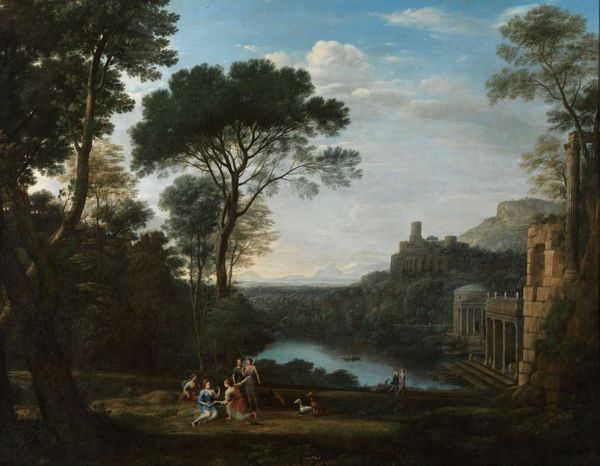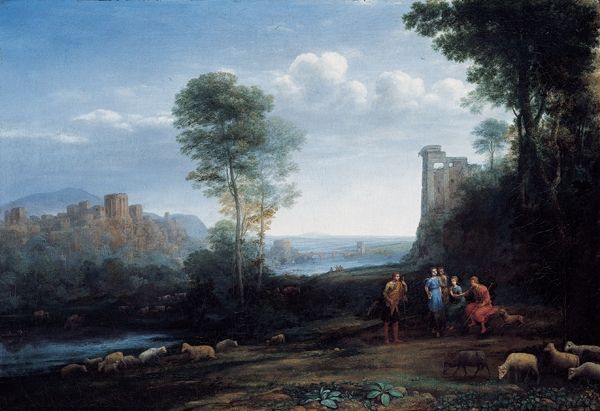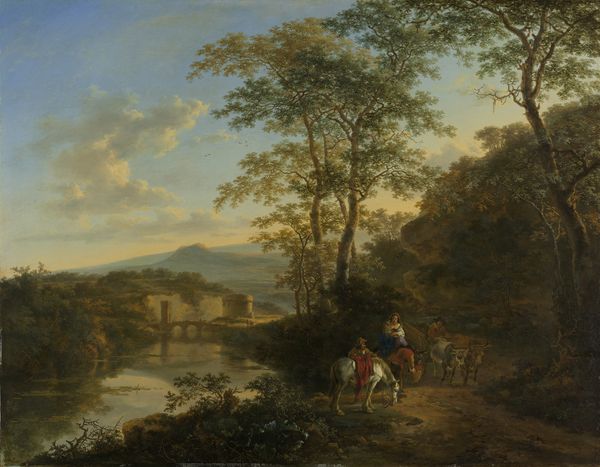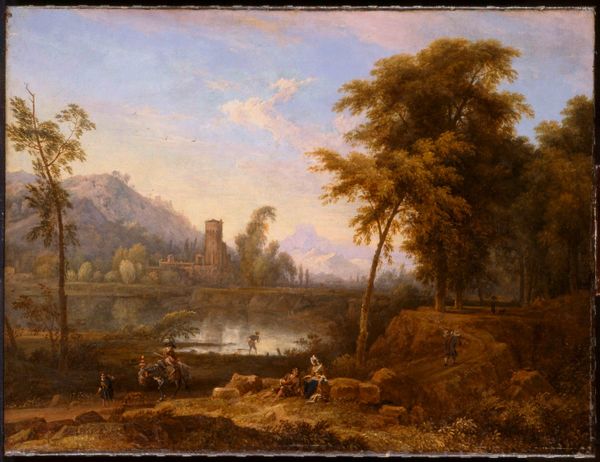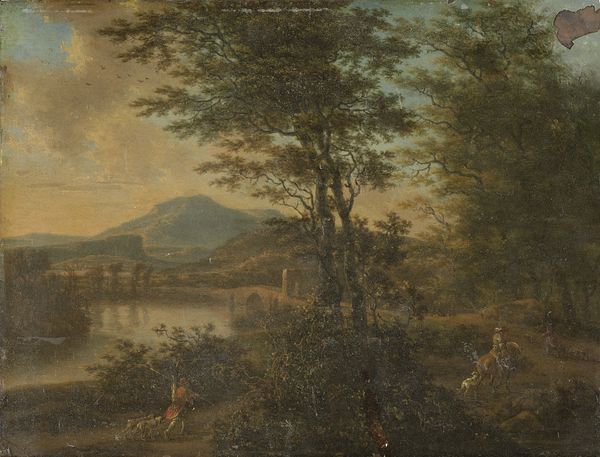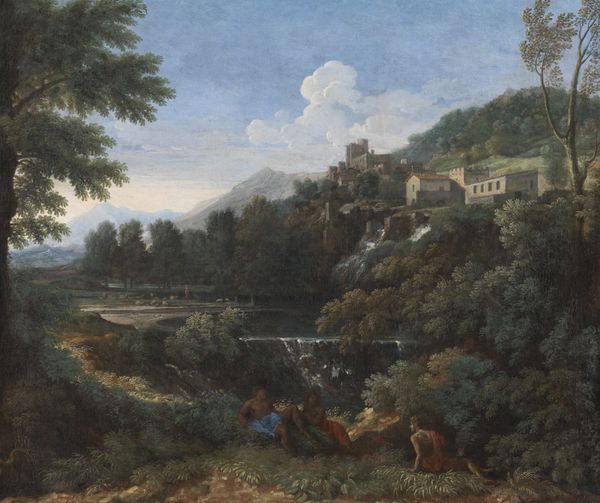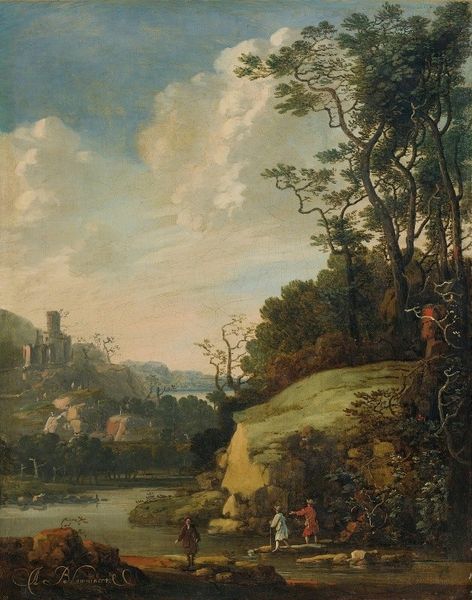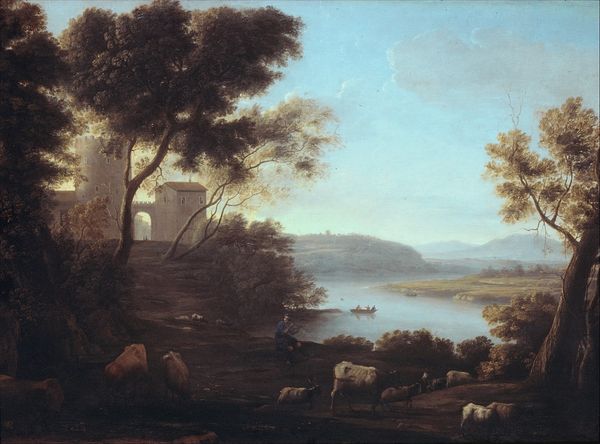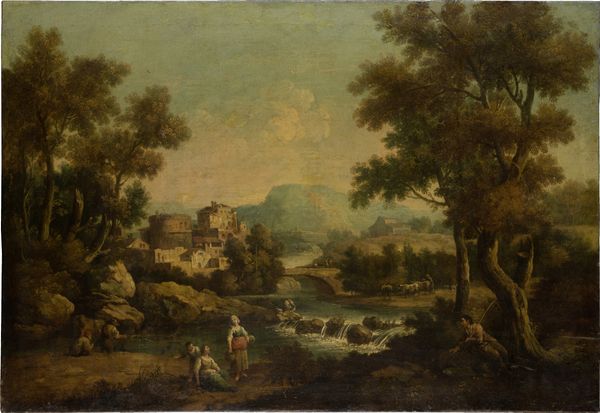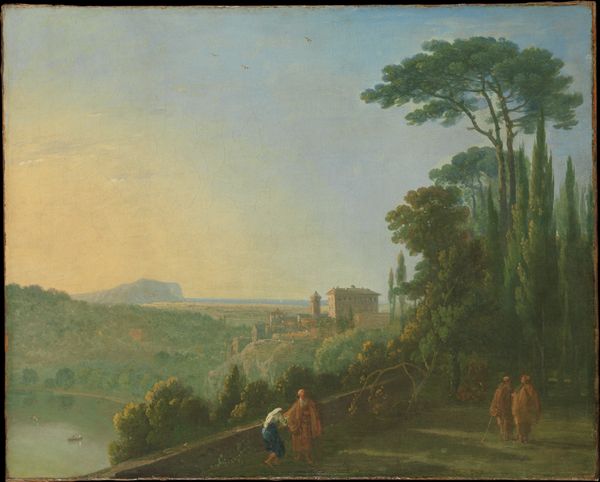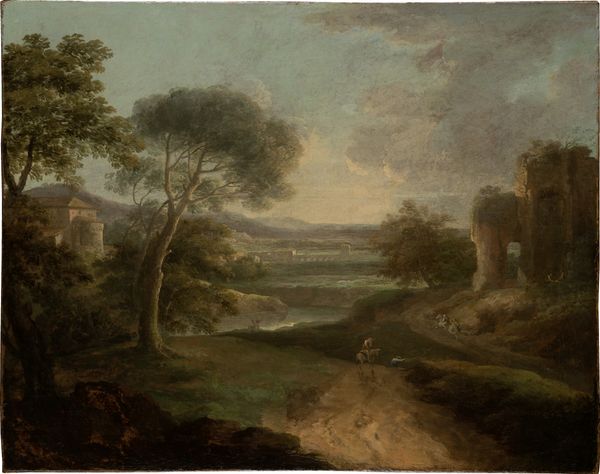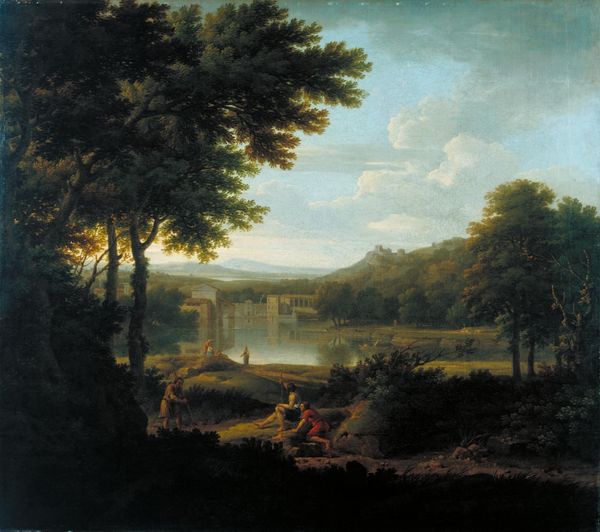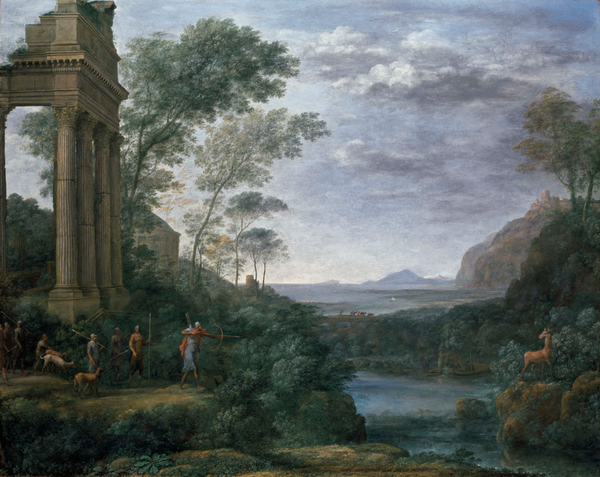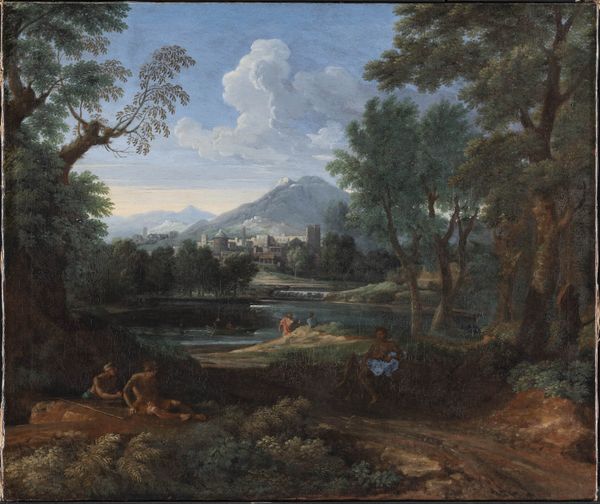
painting, oil-paint
#
baroque
#
painting
#
oil-paint
#
landscape
#
figuration
#
oil painting
#
history-painting
#
academic-art
Dimensions: 65 cm (height) x 94.5 cm (width) (Netto), 83.5 cm (height) x 113.5 cm (width) x 7.5 cm (depth) (Brutto)
Curator: This oil on canvas, entitled "River Landscape with Herdsmen," was painted by Claude Lorrain between 1628 and 1632. Note how the composition leads your eye from the foreground figures towards the distant, misty mountains. Editor: It evokes such a serene, almost melancholic mood. The soft light, the hazy distance... it feels like stepping into a memory. Curator: Lorrain’s landscapes, while seemingly pastoral, often subtly incorporated elements of classical history and mythology. The herdsmen, the Roman ruin atop the hill – these elements nod to a romanticized past, to the Arcadian ideal. We must understand such imagery to appreciate its socio-political import. The academic style here indicates a direct intention by Lorrain for his art to be accepted by learned society. Editor: Absolutely. That ruin in the background, for instance, speaks volumes. It's not just a picturesque detail; it’s a visual cue about the passage of time, the cyclical nature of civilizations. Think about how often water is included, acting almost as a mirror that shows us both present and past. The building looms over figures, creating a stark contrast between nature and society, which might further contribute to a sensation of longing. Curator: And the herdsmen themselves, though seemingly ordinary, tie into a broader theme: man's relationship with nature, labor in a rural setting. Note how such visual expressions contributed to establishing social hierarchy and gendered spaces, very evident through his choice of rendering. Editor: The figures become part of something larger, part of a timeless scene that speaks to universal human experiences, even the weight of being human and bound to land. Curator: Precisely, an image built to influence and affect audiences that are still responding to it today. Editor: Seeing it in that light helps me understand how the scene also operates on an emotional level. Thanks for this interesting tour of a significant oil-based work. Curator: You're welcome! Delving into its many influences adds a new dimension to our understanding of baroque landscape painting.
Comments
statensmuseumforkunst about 2 years ago
⋮
The trees tower majestically above the idyllic landscape in which shepherds and animals are painted like small, pretty ornaments within the vast countryside that stands like a well-ordered stage set around them. A sense of sweetness rests over this landscape; everything is shrouded in a slight haze, but it is an appealing scene, inviting us to explore nature. We might say that Claude Lorrain turned the landscape into poetry, or that he eroticised landscape. Nature is marvellous and inviting; it encourages intimacy and rapture. It is ready to be explored, tying in well with the advent of modern natural science. Works that present nature in a position somewhere between the idyllic and the monstrous, where nature is certainly greater than man, but not dangerous, are called "picturesque" or "pastoral" landscapes. By contrast, images that depict nature as overwhelming and frightening are called “sublime" landscapes.
Join the conversation
Join millions of artists and users on Artera today and experience the ultimate creative platform.
statensmuseumforkunst about 2 years ago
⋮
This landscape is not a real-istic depiction of a specific lo-cation, even though the Tiber valley and its castle ruins were often the subject of the artist’s open-air studies. The artist has created a landscape that surpasses nature itself, a so-called ideal landscape. Hills and mountains disappear gradually into the gradient aer-ial perspective where the col-ours of the sky and earth merge on the horizon. Our eye travels smoothly through the various planes of the image, where shepherds with their flock, walkers and ferries pro-vide variety. Claude’s land-scapes were keenly collected, especially by art aficionados among the aristocracy and clergy. Originally from Lorraine, Claude lived and worked in Rome throughout most of his career. For many years he kept a modest home in Via Margutta near Piazza di Spa-gna, a favourite haunt of for-eign artists in Rome.
